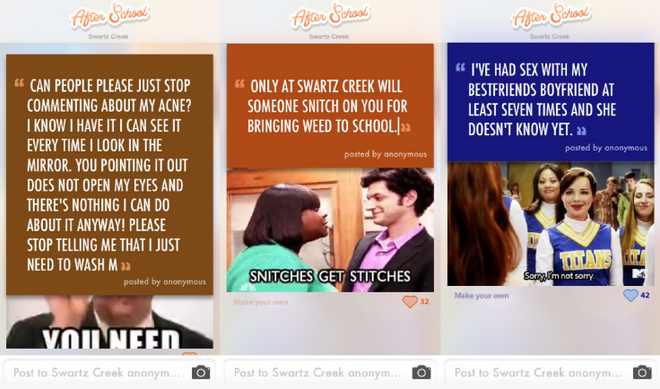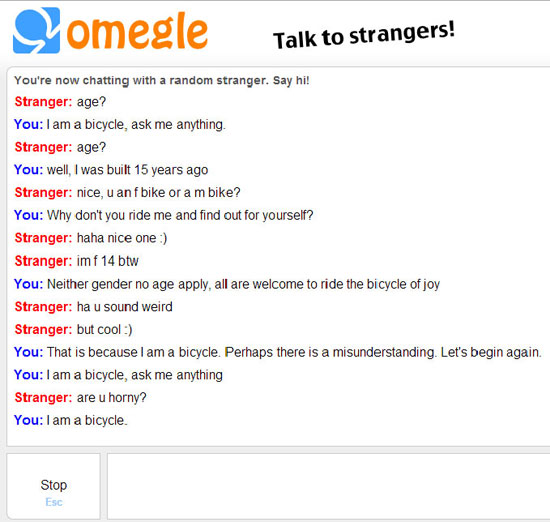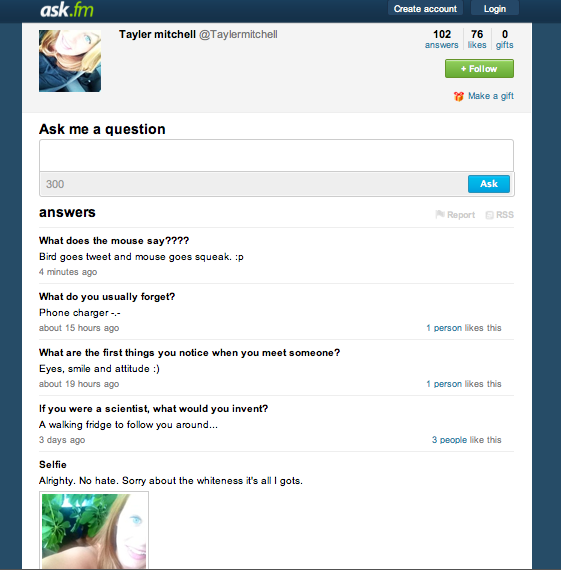There is something about anonymity that gives people a sense of freedom; The ability to speak freely without being judged by people we see everyday. Given the number of new networks that support anonymous participation, there is clearly a need for it. In the long run, are these networks helpful or harmful? A bit of both.
Helpful:
- allows people to reach out for help for problems they don’t feel comfortable sharing
- get the feeling of being part of a community
- ease and privacy of using a network without logging in or creating an account
Harmful:
- Allows a cruelty you would never see in person
- naive users are easy targets for predators
- False sense of security because the network or application team can get your location, email and/or personal information
Here’s what you need to know about the 6 most popular anonymous apps:
The Confessional
Ever have a secret you are dying to get off your chest but have no one you can tell? Want to announce something but don’t want to brag to friends? Enter Whisper. This app allows you to express how you are feeling in a few short sentences without anyone knowing it is you. If your post is ‘upvoted’ then it filters to the main screen for more viewing.
Whisper allows you to post your thoughts using either your own photo as background or one of their stock photos. Once posted, other people can anonymously comment on it. Sometimes a question is asked (exmaple: What do you hate about dating?) and then people post Whispers to answer that question.
Allure:
- So far this network has shown to be helpful for those suffering in silence on personal issues. When users reach out about their fears, others have been providing support.
Risk:
- In Whisper, you can engage users in a personal message thread which could lead to divulging identifying information
The Bathroom Walls
Similar to the confessionals, these apps allow you to anonymously post text over-layed on an image. The difference here is that it is targeted at schools. Yik Yak was designed for college campuses, so you can communicate with users in a 5 mile radius. In After School, you select your school by drop down list and then the devices verifies that you go there using other data on your phone (GPS, Facebook data).
These apps were designed to have classmates talk with each other. Unfortunately, in both cases, these apps are rampant with bullying. Think of the messages on a bathroom wall (“Billy is a dork” or “Lucy is a slut”). There are several schools in the US that have banned their use so the apps have had to accommodate for this by turning off functionality on actual school grounds but working within the vicinity of the school.
Another app that fits here is Sarahah. This app was originally designed for employees to give anonymous feedback to their employers. Teens however have picked it up to give anonymous ‘feedback’ on people they know. You can use this for positive comments, but as above, it’s also easy grounds for bullying. Recipients accounts can be searched for, posters are anonymous.
Allure:
- Kids can read and post gossip anonymously so they feel part of the clique
Risk:
- Lots of bullying
The Rule-Breaker
What’s one of the first safety rules you learn? Never talk to strangers. Omegle is a chat app that sets up two anonymous users in a chat room. The tag line is actually “Talk to Strangers”. I have seen a parody on this that said “Talk to pedophiles”. Young kids seem to really gravitate to this one despite the age being set to 18 and over.
Allure:
- People (kids especially) love to ‘experiment’ in conversations with strangers
Risk:
- Easy to give away too much personal information assuming the person on the other end can’t find you
- You can become an easy target for a predator
The Interrogation
Last and (in my opinion) least, we have Ask.fm. Targeted mostly at kids, users enter with a picture and a profile. Then other anonymous users and strangers post questions to their ‘board’ where the profiled person can answer publicly. Sometimes the questions are innocent (“Who are your best friends?”) but often they get nasty fast. This site has the most connected ties to cyberbullying and teen suicides in the UK. In the cases I have seen in local schools, most questions are of a sexual nature.
Allure:
- Users love the feeling of importance they get at the centre of attention
Risk:
- Lots of cyberbullying
- Inappropriate language and content for younger audience
- It is very easy to over-share information in a public way
As an adult, you can decide if you want to use these networks or not. So be cautious about over-sharing personal information.
If you are a parent, you should be wary of what your kids are using. Students in my area are heavy users of Ask.fm and Omegle. Users start as young as 9 or 10.
Make sure to ask your kids what apps they use, have them explain to you why they enjoy using them, and then help guide them to use these apps safely and constructively.





Leave a Reply